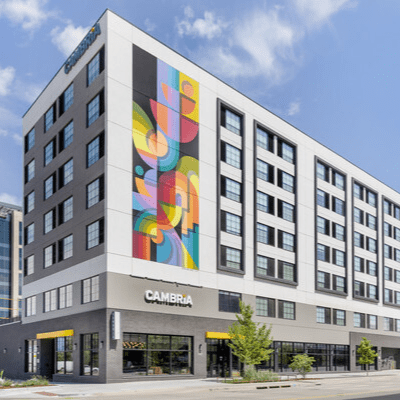The U.S. hotel industry reported mostly negative results in the three key performance metrics during September 2019, according to data from STR.

In a year-over-year comparison with September 2018, the industry posted the following:
- Occupancy: -0.9% to 67.4%
- Average daily rate (ADR): +0.6% to US$131.93
- Revenue per available room (RevPAR): -0.3% to US$88.91
“The second month this year with a negative result points to a continued slowdown for the U.S. hotel industry. Demand only grew 1.2%, not strong enough to overcome a 2.0% increase in supply, so occupancy declined for the third time this year,” said Jan Freitag, SVP of lodging insights at STR. “Hotels at the high end, in the Luxury and Upper Upscale classes, were able to report slight RevPAR increases, but all other classes showed declines. The results on the higher end were positively impacted by a more favorable calendar shift of the Rosh Hashanah holiday and Group RevPAR increased 3.0%, compared to a basically flat (-0.2%) Transient RevPAR change.”
The industry’s current cycle is now at 115 months (March 2010-present) with year-over-year RevPAR increases in 112 of those months. The other two decreases during this run came in September 2018 (-0.3%) and June 2019 (-0.4%).
Among the Top 25 Markets, New Orleans, Louisiana, registered the largest jump in RevPAR (+11.8% to US$92.04), due primarily to the highest rise in occupancy (+9.2% to 66.4%).
Washington, D.C.-Maryland-Virginia, posted the largest lift in ADR (+7.6% to US$170.17), which resulted in the only other double-digit increase in RevPAR (+10.3% to US$123.22).
Orlando, Florida, saw the only double-digit decline in RevPAR (-11.9% to US$64.55), because of the largest drop in occupancy (-9.0% to 61.6%).
Miami/Hialeah, Florida, reported the steepest decrease in ADR (-4.3% to US$134.59) and the second-largest declines in occupancy (-4.7% to 60.7%) and RevPAR (-8.8% to US$81.73).
“Performance in the Top 25 Markets was anemic as well, and RevPAR did not change from last September. Supply growth in those larger markets (+2.7%) continues to outpace the supply increases elsewhere (+1.7%).”
















